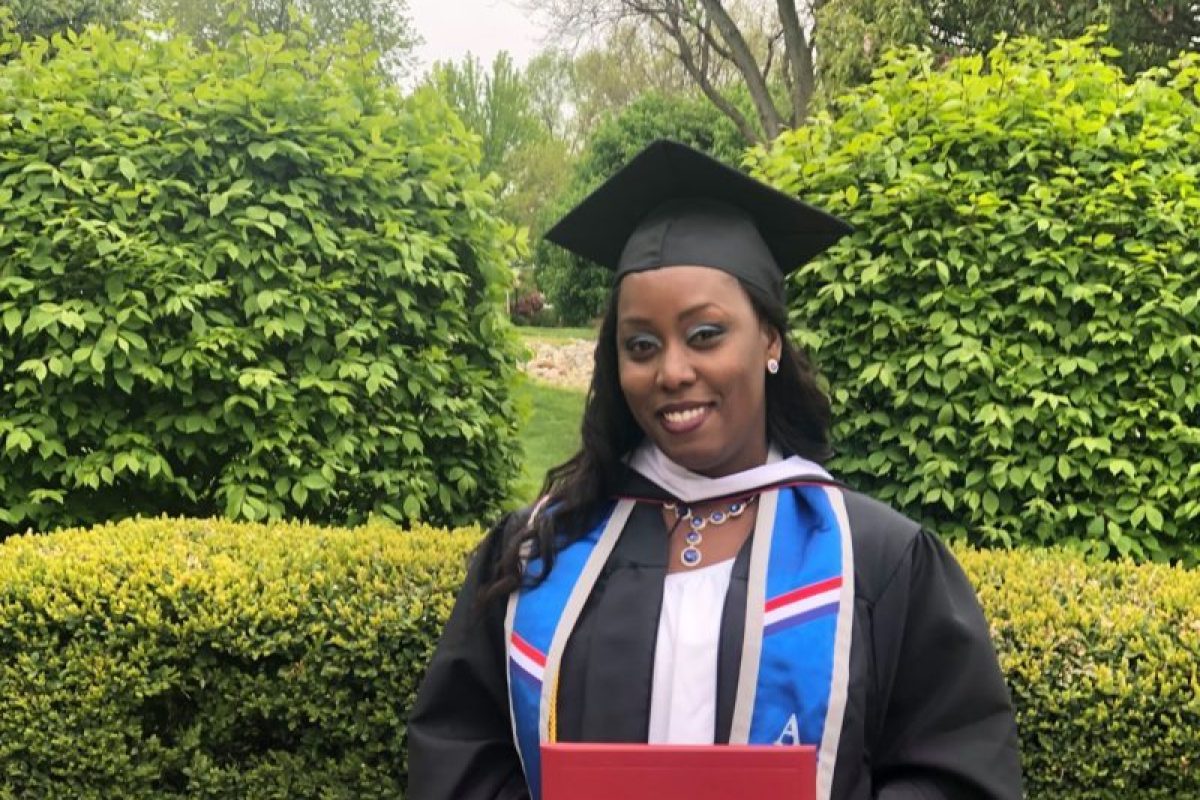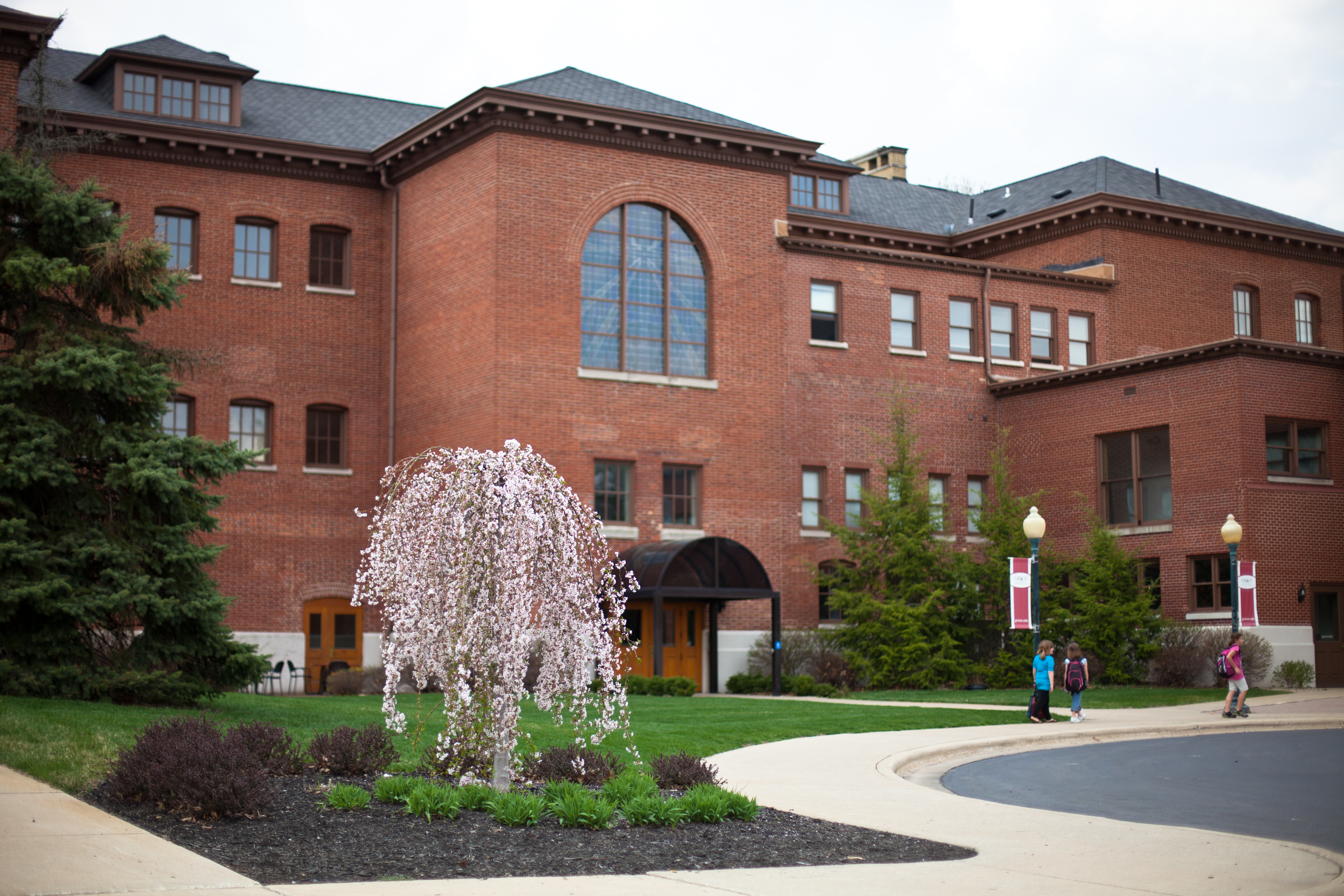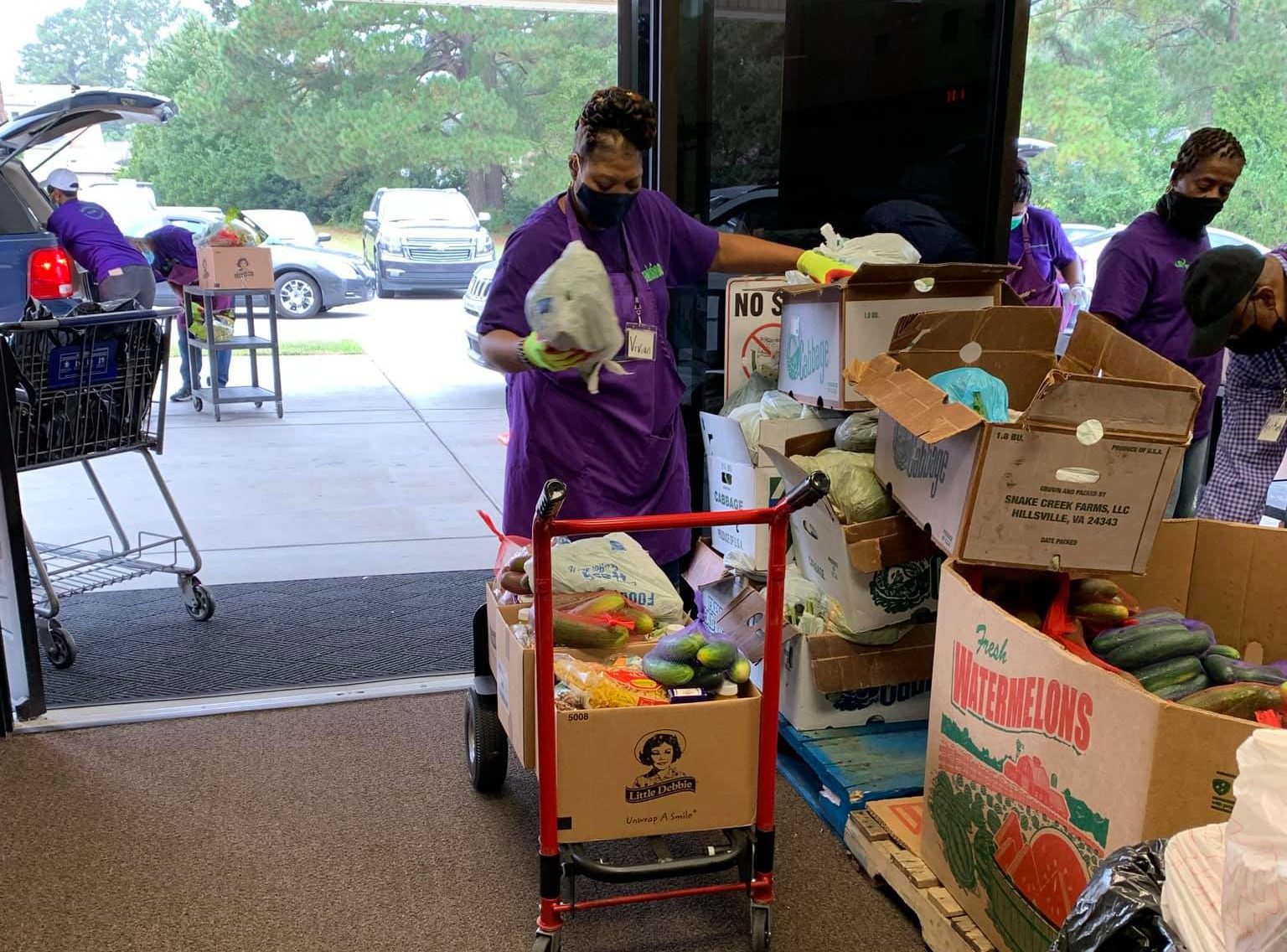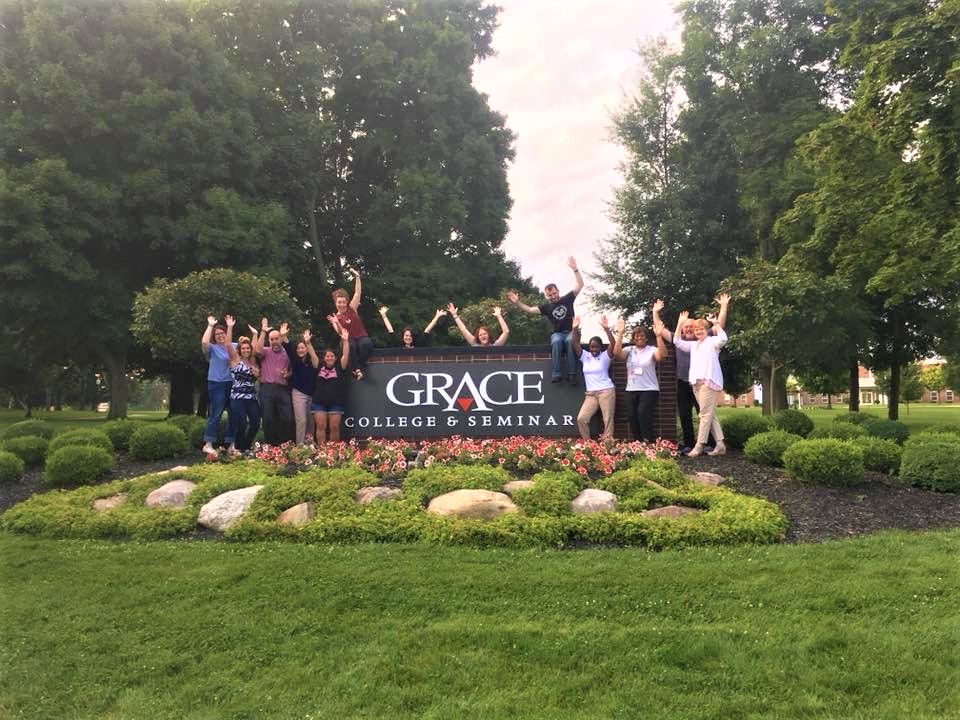August 31, 2021
A New Kind of Service — Miya Moore-Felton’s Search for Counseling Graduate Programs Led Her to Grace
Tagged With Counseling Masters Programs Student Stories

After 20 years in the US Air Force, Miya Moore-Felton felt a tug to make a big career move to meet the needs she saw around her. She was ready for a new kind of service — the service of mental health counseling. Her search for CACREP-accredited graduate programs led her to the online Master’s in Clinical Mental Health Counseling at Grace College, and the rest is history!
Read on, and learn more about her experience in the program!
1. How did you find Grace when looking for counseling graduate programs, and what drew you to it?
I joined the US Air Force in 2001. In 2003, I began working at the Oklahoma Medical Center as a volunteer. While I was there, I was exposed for the first time to the field of social work in a hospital setting. I volunteered there off and on until 2012 when I was deployed to Germany. While in Germany, I was a part of the military’s sexual assault and prevention program and served as a program advocate which helped those in the field access care. In 2014, I was stationed in Afghanistan. Because of the lack of resources for veteran’s mental health during and after combat, I started searching counseling graduate programs. During my search for schools, I came across an article that spoke to the importance of choosing a CACREP-accredited graduate programs.
Not long after, I ended up finding out about Grace through a military magazine. I was drawn to the faith-based community, and my admissions counselor was extremely helpful. One thing just snowballed into another, and before I knew it I was all in.
2. What was most beneficial for you about the program?
In hindsight, the fact that the program is online was invaluable. When the pandemic hit, all of us who had graduated from Grace knew we were capable of working from home and counseling remotely. We didn’t have the same level of anxiety as other counselors because we were used to virtual protocol. We were rocking and rolling, mitigating issues for our clients, taking notes online, and meeting online. There was no sweat because we had been doing all of those things since day one. There can be a stigma with online education, but the coronavirus proved just how valuable online counseling graduate programs can be.
On top of that, our professors were the most beneficial aspect of the program. We always had open access to our professors and open access to each other. The backbone of success in the field of counseling is networking with other therapists, and Grace provided me with that.
3. Why was the Residency helpful for you?
The third year of Residency was my favorite. While it was the most work-intensive Residency, it was the culmination of everything I had been working for. The content was centered on application and fine-tuning before our professors sent us out into the world. It was an emotional experience knowing that it would be the last time we would see our professors and classmates in that setting.
But there were also some really fun-filled times, like going out on Winona Lake and paddle boarding while blindfolded. This team-building exercise was all about learning to trust your peers, clients, and yourself. And most importantly it was about trusting that God has prepared you to go into the field of counseling and impact lives for Him.
4. What are you doing now? How did your online Christian counseling degree help get you there, and what are some of your long-term goals?
I now live in California in the North Bay Area. I have retired from the air force. I’m currently serving as an adjunct professor at Holy Names University and working at a private practice I will start a Ph.D. program in Counselor Education & Supervision at Regent University this fall. Since graduating, I’ve remained connected at Grace as a graduate assistant for the graduate counseling program. It’s been so nice to stay in touch with the community at Grace.
As I look toward the future, I am still leaning towards providing counseling services to veterans. As they say, “You can take the girl out of uniform but you can’t take the uniform off of the girl.”
I would encourage anyone in the program to really use the supervision time and internships as a means to explore your options and find your niche. This is the time to find out who you are in this community.
5. Looking back on your graduate work experience, what would you have told yourself when you were just enrolling in the program?
I have two pieces of advice for those just starting out in counseling graduate programs.
- Ask any questions you have about delivery format in the interview. Looking back, I wish I would have done more research on the technology we use like Adobe and Moodle ahead of time.
- I would take a realistic look at your life and ask yourself if one of the counseling graduate programs can fit into everything you have going on. Make sure you’re walking into your graduate school experience with an open space for academics, don’t just try to cram it in — the program is rigorous, and you will want to have intentional time to digest the content and take it all in!
Does Miya’s experience pique your interest in online counseling graduate programs? Learn more today!


